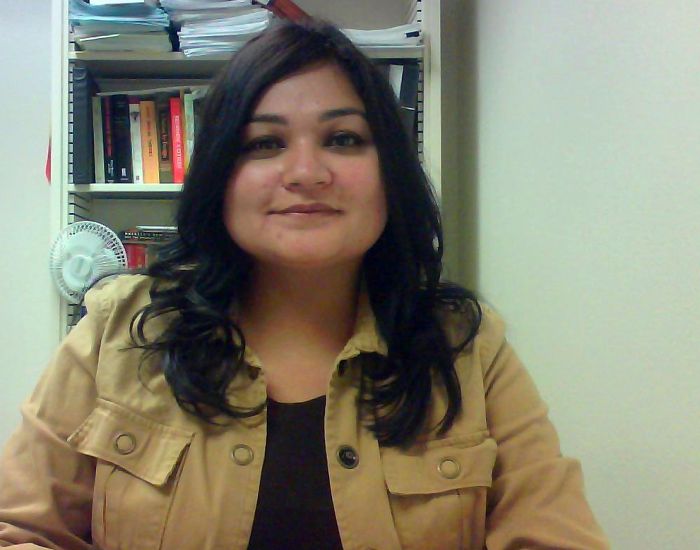By Erin Hardy, Class of 2011, B.A., communications
For many students, California State University, Dominguez Hills is a great place to learn, make new friends, and form relationships that will last a lifetime. Alumni of the school often return to lecture, sponsor students and participate in school activities. To alumna Esther Castillo (Class of ’07, B.A., sociology), the opportunity to return to her alma mater offered her the chance to see the school from a brand new perspective–as a professor.

“Working at Dominguez as a part-time instructor this spring has been one of the most rewarding experiences of my professional career. The exchange of knowledge that my students and I have contributes to my professional development, and has solidified my goal of becoming full-time faculty once I complete my doctoral degree,” Castillo said.
Castillo currently teaches the “Sociology of Education” course held on Saturday afternoons at CSU Dominguez Hills in addition to working at the University of California, Irvine, as a teaching assistant.
“I decided to become a sociologist during the very first day that I took my very first course in sociology at Santa Monica Community College. Sociology bonded my interest in the social [sciences] with the processes that individuals and societies combine to create realities that affect the ways that society and social structures develop,” said Castillo.
Castillo said that one of the reasons she chose not only to attend CSU Dominguez Hills as a student but also to return as a professor was because of its diversity.
“Dominguez [Hills] is known for having one of the most diverse student populations, and that is what made [it] stand out to me when I was looking into transfer options,” she said. “Diversity is what continues to make it a campus that I could see myself teaching at full time once I complete my doctorate.”
Castillo’s graduate research is focused on immigration, race and ethnicity, and her dissertation will discuss Mexican immigrant incorporation. She said that she is using census data to look at the ways that immigrants partake in “American life” and would like to present the ways in which a marginalized immigrant group proactively incorporates into the mainstream culture.
“On my path to completing my Ph.D. in sociology, I have been affected by negative stereotypes and stigmas associated with me being a non-traditional student. Being a working adult, mother, wife, and of Mexican descent was not seen or treated with negative connotations at Dominguez Hills. And as I balance graduate school with the labels I am given as a non-traditional student, I continue to look back to my days at Dominguez, when all that seemed to affect my label as a student was my drive and [quality of work],” Castillo said.
Erin Hardy is a graduating senior in the communications department and an intern in the Office of University Communications and Public Affairs.